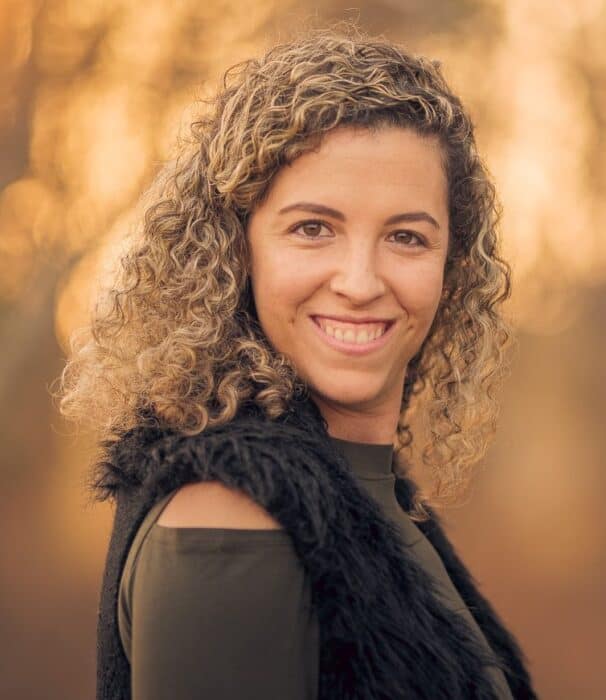
Sharon is a certified life coach and a mother of a gifted child. With expertise in coaching and personal development, she’s passionate about offering practical solutions that help families and individuals succeed.
Are you wondering how to get into Johns Hopkins CTY?
This guide will provide clear and simple steps to help your child succeed. From eligibility requirements to test preparation and program details, we’ve got you covered.
By the end of this guide, you’ll have the information you need to guide your child through the application process. With the right preparation, they’ll be ready to join an advanced program that matches their potential. Let’s get started!
The Johns Hopkins Center for Talented Youth is a nonprofit academic center of Johns Hopkins University. Established in 1979, CTY identifies and nurtures academically advanced students from grades 2 through 12.
Its mission is to provide challenging educational programs that foster intellectual growth in exceptional young learners.
The esteemed program offers opportunities for gifted students to engage in rigorous coursework beyond the standard school curriculum.
Participating in these programs allows students to delve deeper into subjects of interest, develop critical thinking skills, and connect with peers who share their passion for learning.
This environment supports their academic and personal development, preparing them for future academic challenges.
CTY provides a variety of programs tailored to the needs of advanced learners:
Students must meet specific academic criteria based on standardized test scores and grade levels to join the Johns Hopkins Center for Talented Youth.
The Johns Hopkins special program evaluates students’ abilities through above-grade-level assessments to determine eligibility for its programs.
Achieving qualifying scores allows students to enroll in courses that match their academic strengths.
They accept various standardized tests for eligibility assessment, including:
Qualifying scores vary by test and grade level. The program categorizes eligibility into two levels:
Below are the required scores for various assessments:
The SCAT is an above-grade-level test measuring verbal and quantitative reasoning abilities.
Grade Level at Time of Test | CTY-Level Eligibility (Verbal) | CTY-Level Eligibility (Quantitative) | Advanced CTY-Level Eligibility (Verbal) | Advanced CTY-Level Eligibility (Quantitative) |
2 | 433 | 435 | 471 | 475 |
3 | 437 | 438 | 474 | 478 |
4 | 440 | 441 | 476 | 480 |
5 | 443 | 445 | 478 | 482 |
6 | 445 | 448 | 480 | 485 |
7 | 448 | 450 | 482 | 487 |
8 | 450 | 452 | 484 | 489 |
9 and above | 453 | 455 | 486 | 491 |
Scores are based on scaled scores; higher scores indicate higher reasoning abilities.
Read more about the SCAT Scores and how to improve them in our detailed guide >>
The SAT suite assesses mathematical and evidence-based reading and writing skills.
Grade Level at Time of Test | CTY-Level Eligibility (Math) | CTY-Level Eligibility (Evidence-Based Reading and Writing) | Advanced CTY-Level Eligibility (Math) | Advanced CTY-Level Eligibility (Evidence-Based Reading and Writing) |
5 | 500 | 510 | 580 | 590 |
6 | 520 | 530 | 600 | 610 |
7 | 540 | 550 | 620 | 630 |
8 | 560 | 570 | 640 | 650 |
9 and above | 580 | 590 | 660 | 670 |
Scores are based on the SAT scale; higher scores reflect greater proficiency.
The ACT evaluates English, mathematics, reading, and science reasoning skills.
Grade Level at Time of Test | CTY-Level Eligibility (Math) | CTY-Level Eligibility (English) | Advanced CTY-Level Eligibility (Math) | Advanced CTY-Level Eligibility (English) |
7 | 18 | 20 | 23 | 25 |
8 | 20 | 22 | 25 | 27 |
9 and above | 22 | 24 | 27 | 29 |
ACT scores range from 1 to 36; higher scores indicate higher achievement.
The STB assesses spatial reasoning skills, important for STEM fields. CTY considers the following percentile ranks for eligibility:
Grade Level at Time of Test | CTY-Level Eligibility (Percentile Rank) | Advanced CTY-Level Eligibility (Percentile Rank) |
5 | 95th | 97th |
6 | 95th | 97th |
7 | 95th | 97th |
8 | 95th | 97th |
9 and above | 95th | 97th |
Percentile ranks compare a student’s performance to that of a normative sample.
NOTE: The information provided reflects data available as of January 2025. For the most current eligibility criteria and required scores, please refer to the program’s official eligibility scores page.
These programs are designed for students in grades 2 through 12. Eligibility is determined based on the student’s current grade level at the time of testing. It’s important to note that some programs may have additional age or grade-specific prerequisites.
The Center for Talented Youth provides an online Eligibility Calculator to help families determine qualifying levels based on test scores. You can enter specific test scores and grade levels to assess eligibility for various programs.
Additionally, detailed information about accepted tests, score requirements, and the application process is available on the official website. Utilizing these resources can guide you in understanding and meeting the eligibility criteria for your child.
Once eligibility is achieved, it does not expire, allowing students to participate in special programs throughout their academic journey.
Applying to the Johns Hopkins Center for Talented Youth involves several key steps. Here’s a concise guide to help you navigate the process:
1. Create a MyCTY Account
Begin by setting up a MyCTY account on the official website. This account will serve as your portal for managing applications, test registrations, and accessing program information.
2. Register and Take a Qualifying Test:
After creating your account, register for an above-grade-level assessment to establish eligibility. They accept various standardized tests, including the SCAT, PSAT, SAT, ACT, and STB. Choose the test that aligns with your child’s strengths and schedule it accordingly
3. Submit Scores and Complete the Application:
Once the test is completed, submit the scores through your MyCTY account. After the center reviews and confirms eligibility, you can proceed to complete the program application, selecting courses that match your child’s interests and qualifications.
The special programs for talented youth have specific application periods and deadlines. For instance, the On-Campus Summer Programs Enrollment Schedule outlines application date ranges and corresponding deadlines. Consult the official enrollment calendar to stay informed about current deadlines and ensure timely submission of all materials.
Following these steps and adhering to the following tips lets you streamline the application process. It will also enhance your child’s chances of admission into the esteemed programs.
Preparing effectively starts with the right tools. Practice tests and study materials help students become familiar with the test format and question types. Here are some useful resources:
Creating a study plan is essential for effective preparation. Structured strategies help students focus their efforts, making study time more productive. Here are some tips to get started:
Consistency is the key to success. Regular practice not only reinforces what your child has learned but also builds confidence as you see steady progress over time. With a reliable routine, mastering the material becomes more achievable.
Pinpoint subjects or question types that need extra attention after taking an initial diagnostic test or reviewing sample questions.
Spend additional time reviewing challenging topics, such as improving vocabulary for verbal reasoning or refining problem-solving techniques for quantitative sections. Students can significantly boost their overall performance by focusing on their weak areas.
Replicating the actual test environment is an effective way to prepare. Use a quiet room, set a timer, and complete full-length practice tests in one sitting.
This helps students become accustomed to the pacing required for the real exam and reduces test-day anxiety. Reviewing these practice sessions afterward will also highlight areas for further improvement.
Avoiding common pitfalls can make a significant difference in test readiness. Being aware of these mistakes will help students stay on track and achieve their best results:

Enrolling in the Johns Hopkins Center for Talented Youth offers students more than just academic enrichment. It opens doors to transformative experiences that shape both their personal and intellectual development.
The programs challenge students to think critically and explore subjects beyond the standard school curriculum. Participants engage with advanced topics that nurture analytical thinking, problem-solving, and creativity.
Through rigorous coursework and hands-on learning opportunities, students build a strong foundation for academic success, paving the way for future achievements.
The Center for Talented Youth (CTY) fosters a vibrant community of gifted students and mentors, creating an environment that encourages collaboration, discussion, and the exchange of ideas
Students from diverse backgrounds connect with like-minded peers, building relationships that often extend beyond the program.
CTY also provides valuable access to mentorship and professional networks. Students interact with experienced educators and experts in various fields, gaining insights into potential career paths and opportunities.
These connections inspire ambitious goals and can open doors to internships, research opportunities, and other avenues for personal and professional growth.
The challenging nature of these esteemed programs teaches students to persevere through academic difficulties and overcome obstacles. This resilience translates into other aspects of their lives, including future academic pursuits and personal goals.
Immersing themselves in subjects they’re passionate about lets students develop a genuine love for learning, which stays with them throughout their lives.
The Johns Hopkins Center for Talented Youth has a profound impact on its participants, shaping their academic journeys and professional achievements.
Alumni of CTY programs consistently distinguish themselves across various fields, attributing their success to the foundational experiences gained during their time at CTY.
CTY’s rigorous programs equip students with advanced academic skills, critical thinking abilities, and a passion for lifelong learning. Alumni often credit their experiences for preparing them to excel in high school, gain admission to prestigious universities, and achieve top academic honors.
The skills honed through CTY—such as time management, research proficiency, and collaboration—remain invaluable throughout their careers.
CTY has nurtured some of the brightest minds across various disciplines. Notable alumni include:
These individuals exemplify the diverse talents and achievements of alumni, highlighting the program’s role in nurturing exceptional abilities.
The alumni’s success highlights the program’s importance in nurturing talent and preparing students for future challenges. It shapes the leaders, innovators, and change-makers of tomorrow by offering an environment where gifted learners can thrive.
Joining the Johns Hopkins Center for Talented Youth (CTY) marks an important step toward academic and personal growth. Students can enhance their chances of acceptance by understanding the application process, preparing diligently for admission tests, and exploring financial aid options.
Participation in CTY provides advanced educational opportunities and fosters a community of like-minded peers, paving the way for future success. Taking these steps ensures that students are well-prepared to unlock their potential and thrive in an enriching academic environment.

Sharpening your child's skills with lifelike practice for gifted tests and school exams.
© 2025 GiftedReady | HTML Sitemap